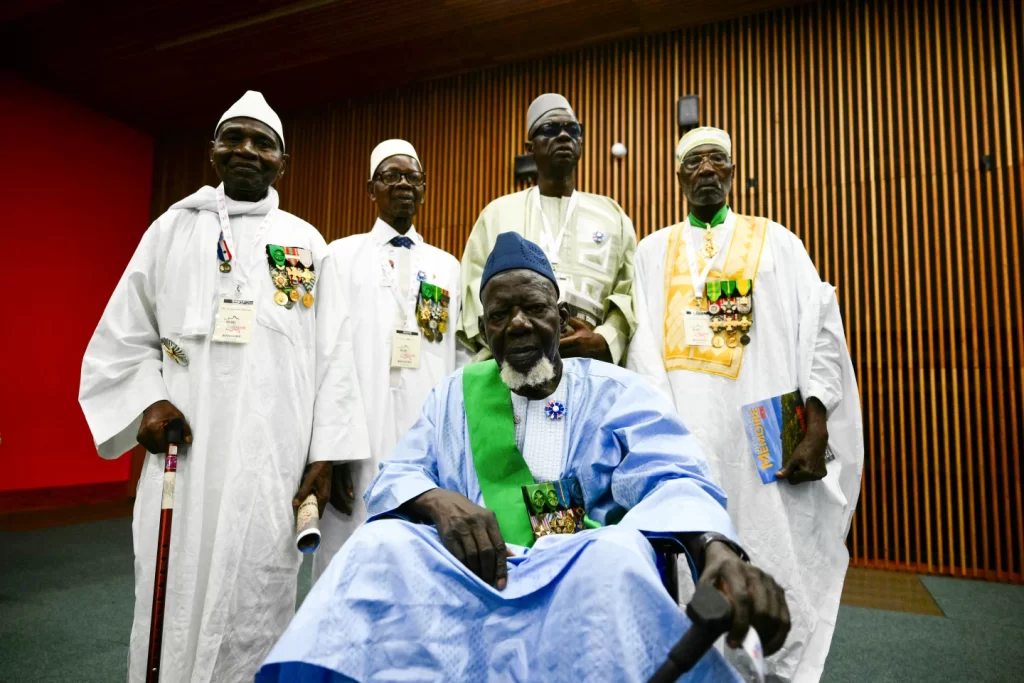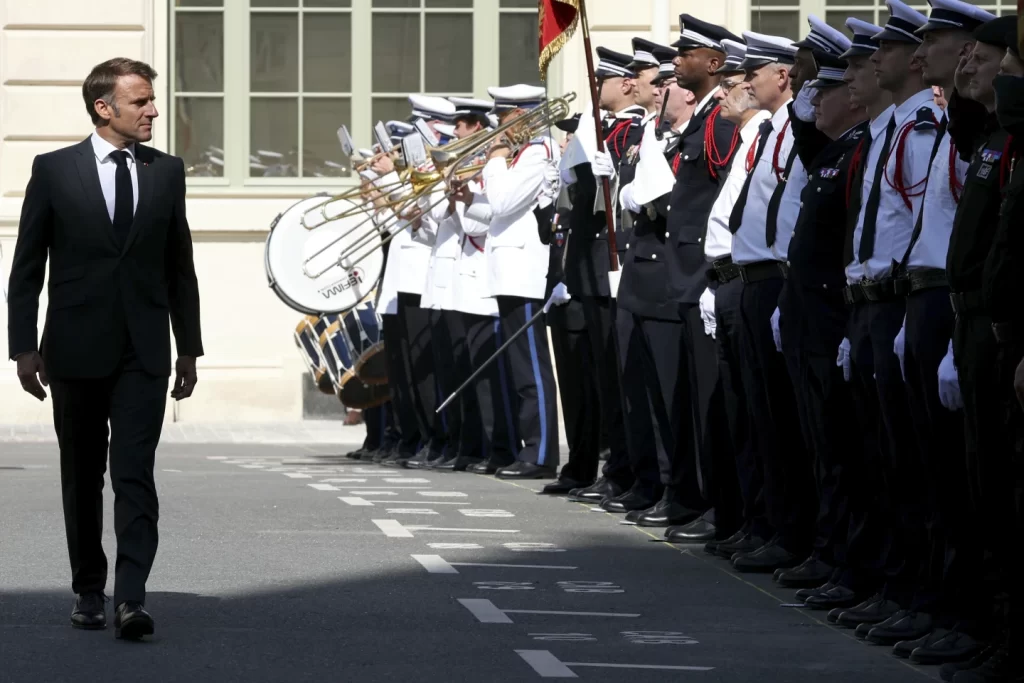SAINT-RAPHAEL, France – On Thursday, France commemorated the 80th anniversary of the Allied invasion of the French Riviera during World War II, an operation that played a pivotal role in pushing back Nazi forces. The series of events paid special tribute to the many African soldiers from French colonies who took part in the campaign, often referred to as “the forgotten D-Day.”

The ceremonies were presided over by French President Emmanuel Macron and attended by several international leaders, including Cameroonian President Paul Biya. Originally scheduled to include a seaborne segment along the Mediterranean coast, part of the commemoration was canceled due to storm warnings.
The centerpiece of the commemoration took place at the Boulouris National Cemetery in Saint-Raphael, where 464 French soldiers, who died during the fighting in August 1944, are buried. Numerous other African leaders also took part in the tribute, emphasizing the collective effort made by soldiers from France’s then-colonies to secure the liberation of the country.
Six surviving World War II veterans—five from France and one from another nation—were honored with the prestigious Legion of Honor, France’s highest award, in recognition of their bravery and contribution during the war. The event was followed by an aeronautic demonstration and a grand fireworks display.
“Starting August 15, 1944, hundreds of thousands of Allied troops descended on the Mediterranean coast for Operation Dragoon,” Macron said during his address. This operation, which involved a massive deployment of both American and French forces, aimed to push back Nazi occupiers in the southern region of France.

The operation, which unfolded just two months after the better-known D-Day invasion of Normandy, was initially intended to coincide with that earlier invasion. However, Operation Dragoon was delayed due to logistical challenges and a shortage of resources. Eventually, it proved to be an instrumental turning point in liberating southern France.
Operation Dragoon is noted for the significant participation of African soldiers, who accounted for nearly half of the French contingent. These soldiers hailed from French colonies that have since gained independence, including countries across North and West Africa. “These brave men from across Africa were integral to France’s liberation,” Macron said, acknowledging the often-overlooked contributions of African forces in the conflict.
The exact number of casualties remains uncertain, but French Defense Ministry records estimate that approximately 1,300 Allied soldiers, including a substantial number of Africans, lost their lives in the operation’s first two days alone.
Operation Dragoon’s success enabled the Allied forces to liberate much of southern France within four weeks. Troops from the Mediterranean landings eventually joined forces with those advancing from Normandy on September 12, 1944, in Burgundy, marking a major step toward the eventual defeat of Nazi Germany in France.
The event concluded with reflections on the sacrifices made by soldiers from Africa, many of whom never returned home but whose contributions have left a lasting legacy. “It is our duty to remember them,” Macron said, as the French president and dignitaries laid wreaths at the cemetery, honoring the African soldiers who fought for a free France.
apnews.com story



